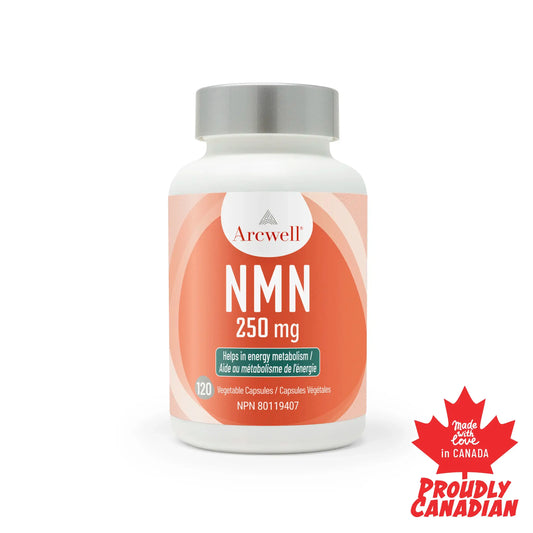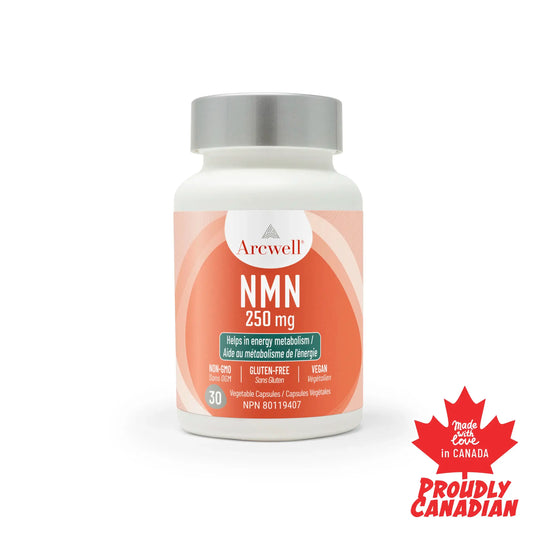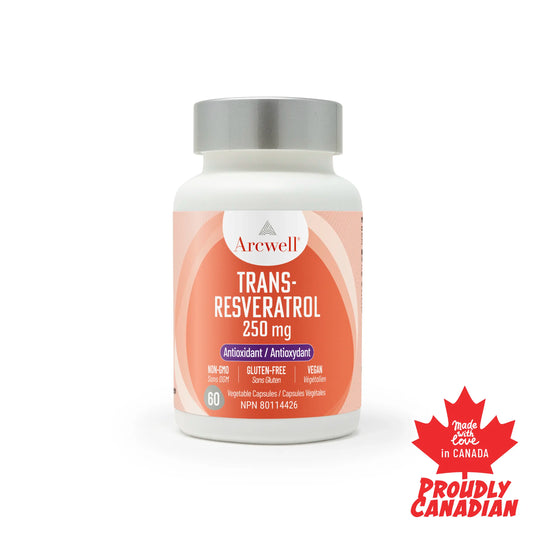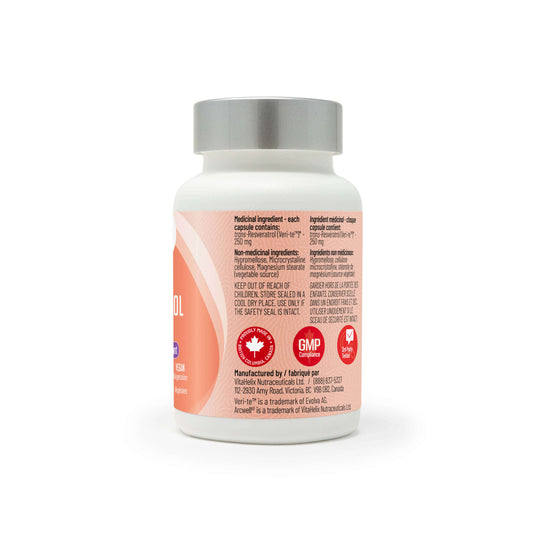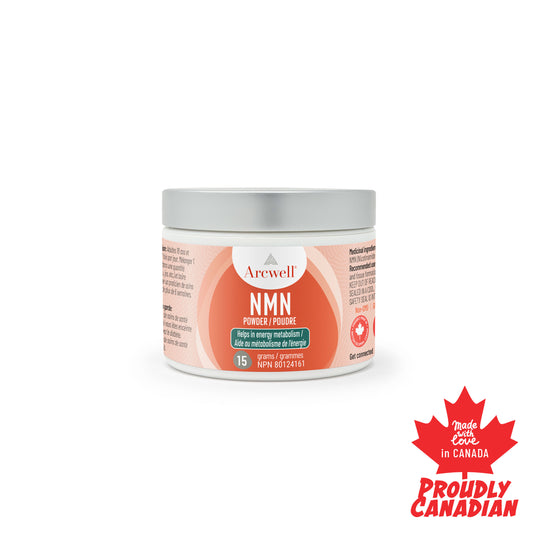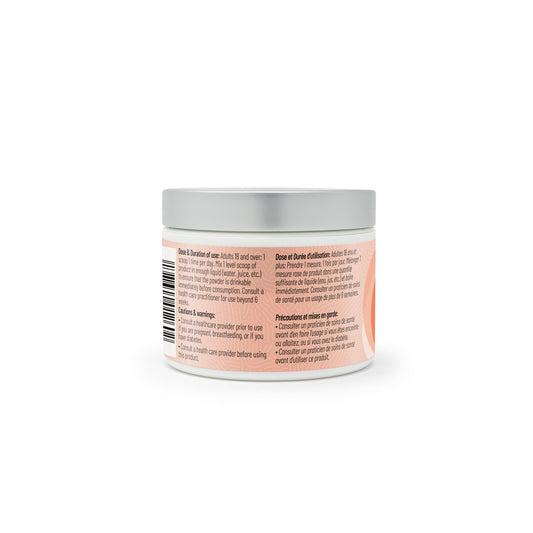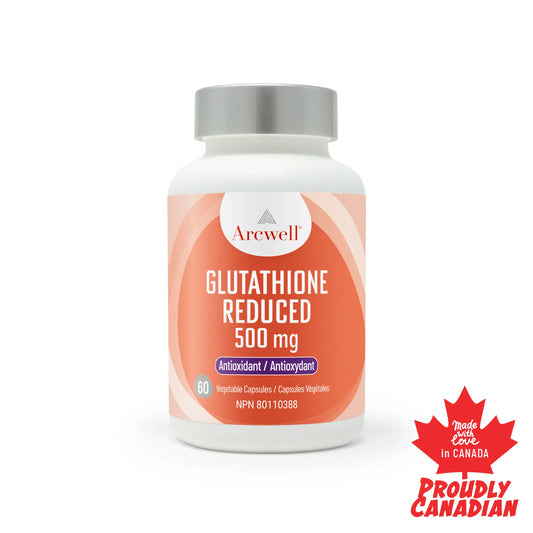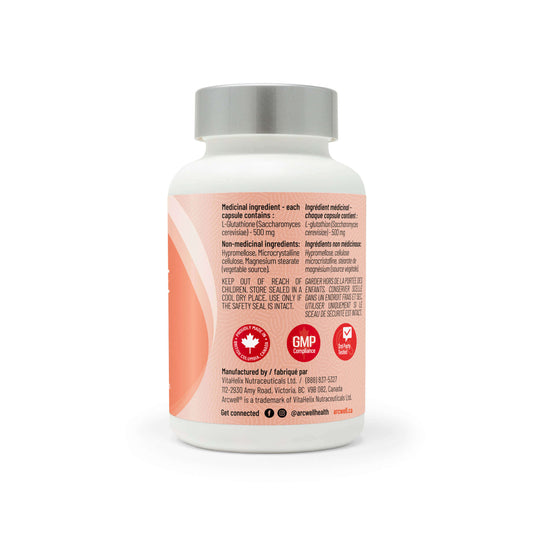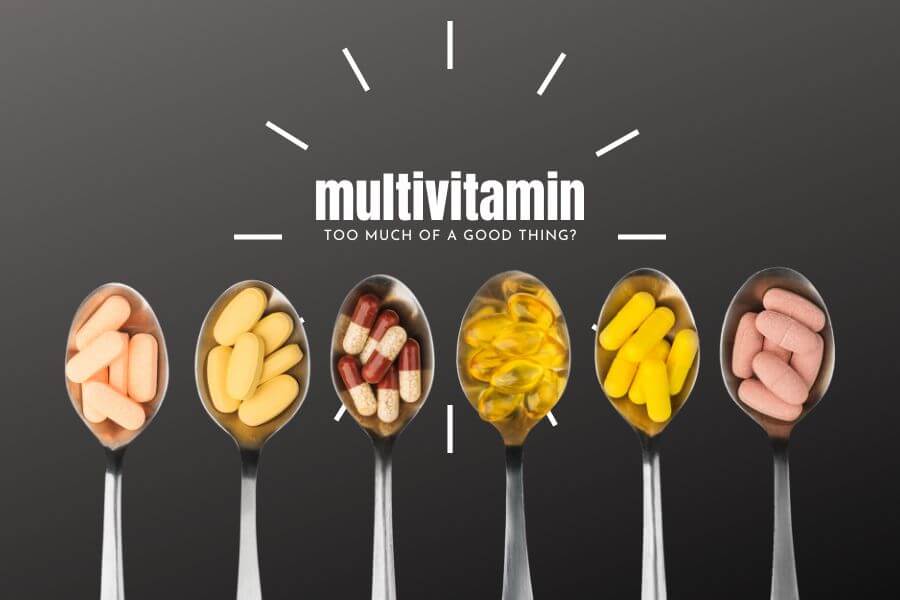
Multivitamins: Can You Have Too Much of a Good Thing?
Share
Can a multivitamin filled with vitamins, minerals and other ingredients be too much of a good thing?
The idea of getting all the nutrients your body needs in a single pill seems to be the smartest and easiest way to get your health in check. This is the main reason multivitamins are so popular nowadays. But when it comes to your health, you must be very careful!
Vitamins and minerals are essential for your body to function properly. The question is whether a multivitamin – an all-in-one dietary supplement – is the best way to keep vitamins and minerals in balance and support your body’s biological needs?
By checking a multivitamin’s label, you will quickly realize there are many variations in the “Supplement Facts” table from brand to brand. For example, some of them have an extremely high dose of active ingredients.
To avoid damaging your health, there are 3 areas you need to pay extra attention to before taking a multivitamin:
-
Intoxication by cumulative effects.
When choosing a multivitamin, pay extra attention to the vitamins A, K, E, D. These vitamins are fat-soluble. By taking a daily dose that’s higher than recommended by the US National Institutes of Health (NIH), you may accumulate excess vitamins in your body fat. Over time, this accumulation can lead to vitamin toxicity which in rare cases can be fatal. Too many of these vitamins will give you the exact opposite of the result you’re expecting. The recommended daily dose by NIH for these vitamins are shown here:Recommended Daily Dose: Vitamin A 700~900 mcg Vitamin K 90~120 mcg Vitamin E 15 mg Vitamin D 15 mcg -
Overdose depending on the brand.
If you take a closer look at the “Supplement Facts” detail on the multivitamin label, you may notice some brands have as much as 25000% of the daily value (DV) for different active ingredients. This is 250 TIMES HIGHER than the dose recommended by NIH!
For instance, vitamin C and vitamin B-complex are water-soluble and cannot be stored or produced by your body. That’s why you should always consider including them in your daily diet. But again, dose matters. Because vitamin C is known to enhance iron absorption, high doses can create iron overload and damage body tissues. The daily upper limit for vitamin C, including intake from all sources, is 2000 mg for adults.
Vitamin B-complex is composed of 8 B vitamins, and it’s important you get the right amount of each. For example, taking a high dose of vitamin B6 for a year or more can cause severe nerve damage, leading to loss of control of bodily movements.
As for vitamin A, according to NIH, “Getting too much pre-formed vitamin A can cause dizziness, nausea, headaches, COMA, and EVEN DEATH”.
With vitamins, the more you take does NOT mean the healthier you will be. -
Interaction with your medications.
It is scientifically proven that some vitamins can interfere with specific medications, either neutralizing the medicinal properties or interacting with the medication, causing cellular malfunction or making the health condition worse.
For example, taking some medications together with vitamin A supplements can enhance the uptake of vitamin A, bringing it to a dangerous level in your blood. Also, a study showed that taking “statins and Niacin (Vitamin B3)”, two cholesterol-lowering drugs, in combination with vitamin C and antioxidants such as vitamin E, selenium, or beta-carotene will reduce the drug’s efficacy and ability to protect the heart. Scientists aren’t entirely clear on the mechanics of why combined vitamins and medicines can harm your health. If you are taking any medication, always talk to your healthcare provider before using any multivitamins.
Bottom-Line:
An all-in-one multivitamin supplement is not always a wise choice. You may satisfy one dose of certain vitamins or minerals but overdose on other ingredients that may harm your body.
Like the Chinese proverb says: think 3 times before you act. When it comes to multivitamins, check the dose of active ingredients, take a close look at the Supplement Facts on the label, and ask your healthcare provider whether there’s a risk of interaction with any other medications you take.




